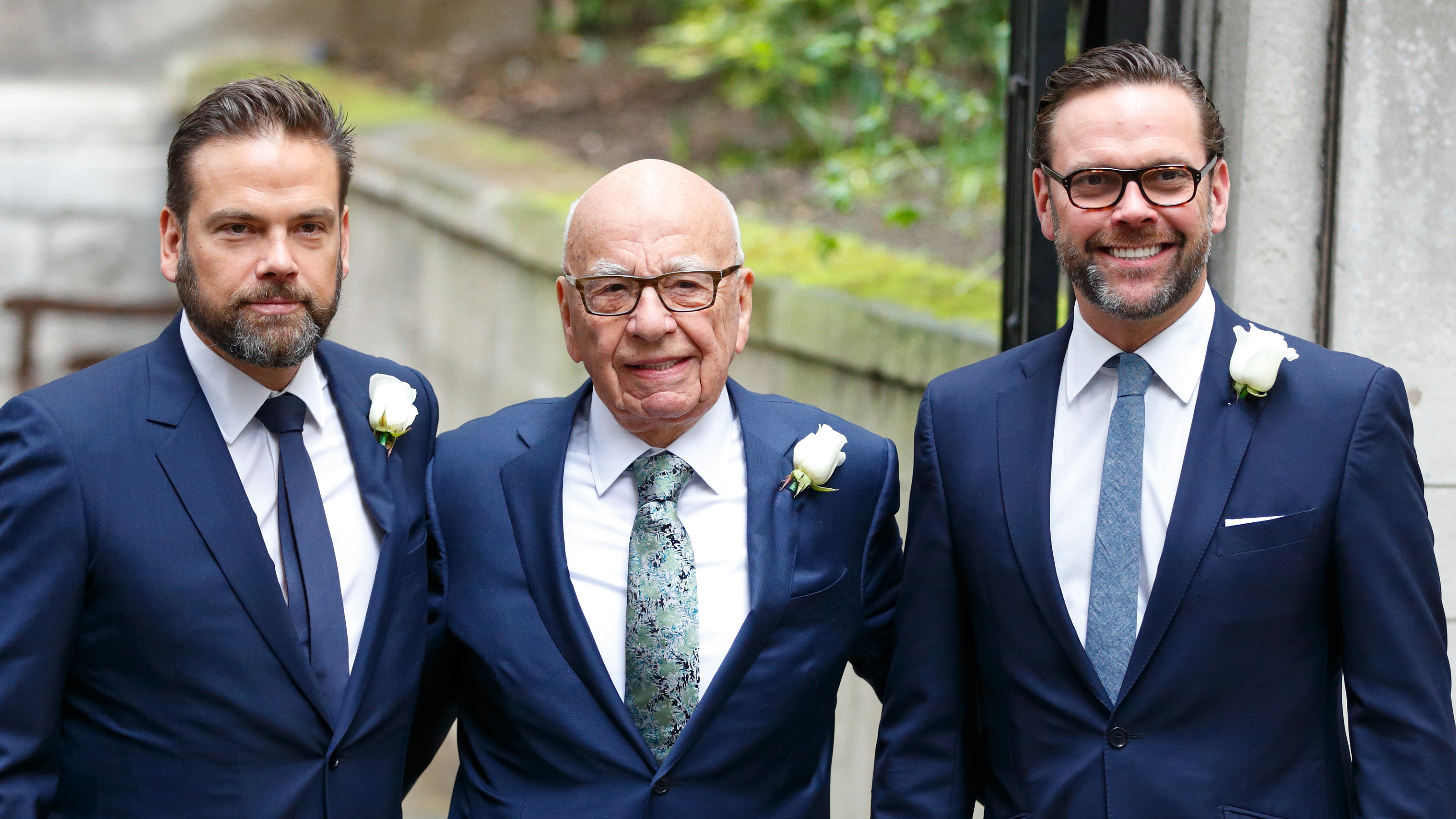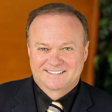Murdochs' Dispute Highlights Benefits of Trusts in Nevada
As Murdoch family members clash over who will control voting shares in the Fox media empire, the court proceedings, in Nevada, are private.


Profit and prosper with the best of Kiplinger's advice on investing, taxes, retirement, personal finance and much more. Delivered daily. Enter your email in the box and click Sign Me Up.
You are now subscribed
Your newsletter sign-up was successful
Want to add more newsletters?

Delivered daily
Kiplinger Today
Profit and prosper with the best of Kiplinger's advice on investing, taxes, retirement, personal finance and much more delivered daily. Smart money moves start here.

Sent five days a week
Kiplinger A Step Ahead
Get practical help to make better financial decisions in your everyday life, from spending to savings on top deals.

Delivered daily
Kiplinger Closing Bell
Get today's biggest financial and investing headlines delivered to your inbox every day the U.S. stock market is open.

Sent twice a week
Kiplinger Adviser Intel
Financial pros across the country share best practices and fresh tactics to preserve and grow your wealth.

Delivered weekly
Kiplinger Tax Tips
Trim your federal and state tax bills with practical tax-planning and tax-cutting strategies.

Sent twice a week
Kiplinger Retirement Tips
Your twice-a-week guide to planning and enjoying a financially secure and richly rewarding retirement

Sent bimonthly.
Kiplinger Adviser Angle
Insights for advisers, wealth managers and other financial professionals.

Sent twice a week
Kiplinger Investing Weekly
Your twice-a-week roundup of promising stocks, funds, companies and industries you should consider, ones you should avoid, and why.

Sent weekly for six weeks
Kiplinger Invest for Retirement
Your step-by-step six-part series on how to invest for retirement, from devising a successful strategy to exactly which investments to choose.
The Murdoch family’s version of the HBO show Succession was recently on display in a Nevada courtroom. Rupert Murdoch, the 93-year-old patriarch of the family, identified his son Lachlan as the heir apparent of Fox Corp., home of conservative news network Fox News, and News Corp. Lachlan is currently the executive chair and CEO of Fox Corp. and chair of News Corp.
Lachlan is believed to share Rupert’s conservative political views, which would better protect the brand and value of Fox News. Note that James Murdoch, Rupert’s son and Lachlan’s brother, recently signed a public letter endorsing Vice President Kamala Harris for president. That certainly conflicts with the public positions of Fox.
However, part of Rupert’s estate plan includes an irrevocable trust that provides for the voting shares of Fox Corp. and News Corp to go in equal shares to his four oldest children: Prudence, James, Elisabeth and Lachlan. Rupert now seeks to give full voting control to only Lachlan.
From just $107.88 $24.99 for Kiplinger Personal Finance
Become a smarter, better informed investor. Subscribe from just $107.88 $24.99, plus get up to 4 Special Issues

Sign up for Kiplinger’s Free Newsletters
Profit and prosper with the best of expert advice on investing, taxes, retirement, personal finance and more - straight to your e-mail.
Profit and prosper with the best of expert advice - straight to your e-mail.
Estate planning in Nevada
Nevada has long sought to establish itself as a premier trust destination and is perhaps best known in the estate planning world for its domestic asset protection trusts (DAPTs). A DAPT is a trust that is designed to protect the creator’s, or grantor’s, assets from his or her own creditors. This is also called a self-settled spendthrift trust.
Currently, only 17 states have laws that permit a DAPT. Nevada is one of those states. The others are Alaska, Delaware, Hawaii, Michigan, Mississippi, Missouri, New Hampshire, Ohio, Oklahoma, Rhode Island, South Dakota, Tennessee, Utah, Virginia, West Virginia and Wyoming.
To establish a Nevada trust or any other DAPT state, you do need to have sufficient contacts with that state. However, you need not actually be a resident of that state, and your assets or real property need not be located in that state. Typically, jurisdiction or required contact is definitively established by using a Nevada trustee.
There are a few Nevada trust companies that can fill that role at your direction. You can continue to be the investment trustee to retain direct control over your assets. Most Nevada trust companies prefer that, as there is less liability for the trust company because it is not directly managing the investments.
Typically, a Nevada LLC or another DAPT state LLC is used to hold assets that are in turn helped by the DAPT. Note that a Nevada LLC provides substantial protection, as collectors are typically limited to receiving amounts distributed from the LLC to the creditor and cannot pierce or seize assets held in the LLC.
Many practitioners rate Nevada as the strongest, or one of the strongest, jurisdictions providing the best asset protection. In making that determination, consideration is given to the following factors:
- Strength of the state statute
- The fact is that Nevada has no state income tax
- The statute of limitations for pre-existing creditors
- Nevada has no exceptions for child support claims
- Nevada has no exception for pre-existing tort creditors
- Nevada has no requirement for a solvent certification
- The need for clean and convincing evidence to establish a fraudulent transfer (a transfer to avoid a creditor)
- The ability to decant or modify the trust
- Nevada LLCs provide strong charging order protection
Nevada allows privacy in disputes
Perhaps the most overlooked characteristic is the ability for privacy within Nevada courtrooms. Parties and judges may hold hearings behind closed doors and even not publish the matter on the court’s public docket. With a private docket, how does anyone file to seek access? Perhaps due to the exceedingly high level of public interest in the Murdoch Family Trust, the Nevada court uncharacteristically disclosed a general docket information page, which was established under the name The Matter of the Doe Trust PR23-00813. The case itself remains sealed and not available for public review or scrutiny.
A media coalition sued for access by reporters — and even cameras in the courtroom — asserting that the public has a right to know. The request was denied, as the judge held that this was “essentially a private legal arrangement.” The denial is under appeal.
This ability to keep disputes like this private is a substantial advantage in Nevada over virtually all other jurisdictions. While this is certainly true for the Murdochs of the world — high-net-worth, high-profile families — we all would like to keep family discord or dirty laundry private. For instance, imagine how different the media coverage would have been had Johnny Depp and Amber Heard been allowed to keep private their highly emotional litigation.
Related Content
- Nine Lessons to Be Learned From the Hilton Family Trust Contest
- What We Can Learn from Tony Bennett's Estate Dispute
- Cut Your Wealth Transfer Taxes With a Family Limited Partnership
- Five Estate Planning Lessons We Can Learn From Elvis’ Mistakes
- Eight Types of Trusts for Owners of High-Net-Worth Estates
Profit and prosper with the best of Kiplinger's advice on investing, taxes, retirement, personal finance and much more. Delivered daily. Enter your email in the box and click Sign Me Up.

Founder of The Goralka Law Firm, John M. Goralka assists business owners, real estate owners and successful families to achieve their enlightened dreams by better protecting their assets, minimizing income and estate tax and resolving messes and transitions to preserve, protect and enhance their legacy. John is one of few California attorneys certified as a Specialist by the State Bar of California Board of Legal Specialization in both Taxation and Estate Planning, Trust and Probate. You can read more of John's articles on the Kiplinger Advisor Collective.
-
 Dow Adds 1,206 Points to Top 50,000: Stock Market Today
Dow Adds 1,206 Points to Top 50,000: Stock Market TodayThe S&P 500 and Nasdaq also had strong finishes to a volatile week, with beaten-down tech stocks outperforming.
-
 Ask the Tax Editor: Federal Income Tax Deductions
Ask the Tax Editor: Federal Income Tax DeductionsAsk the Editor In this week's Ask the Editor Q&A, Joy Taylor answers questions on federal income tax deductions
-
 States With No-Fault Car Insurance Laws (and How No-Fault Car Insurance Works)
States With No-Fault Car Insurance Laws (and How No-Fault Car Insurance Works)A breakdown of the confusing rules around no-fault car insurance in every state where it exists.
-
 Dow Adds 1,206 Points to Top 50,000: Stock Market Today
Dow Adds 1,206 Points to Top 50,000: Stock Market TodayThe S&P 500 and Nasdaq also had strong finishes to a volatile week, with beaten-down tech stocks outperforming.
-
 Why Picking a Retirement Age Feels Impossible (and How to Finally Decide)
Why Picking a Retirement Age Feels Impossible (and How to Finally Decide)Struggling with picking a date? Experts explain how to get out of your head and retire on your own terms.
-
 The Best Precious Metals ETFs to Buy in 2026
The Best Precious Metals ETFs to Buy in 2026Precious metals ETFs provide a hedge against monetary debasement and exposure to industrial-related tailwinds from emerging markets.
-
 For the 2% Club, the Guardrails Approach and the 4% Rule Do Not Work: Here's What Works Instead
For the 2% Club, the Guardrails Approach and the 4% Rule Do Not Work: Here's What Works InsteadFor retirees with a pension, traditional withdrawal rules could be too restrictive. You need a tailored income plan that is much more flexible and realistic.
-
 Retiring Next Year? Now Is the Time to Start Designing What Your Retirement Will Look Like
Retiring Next Year? Now Is the Time to Start Designing What Your Retirement Will Look LikeThis is when you should be shifting your focus from growing your portfolio to designing an income and tax strategy that aligns your resources with your purpose.
-
 I'm a Financial Planner: This Layered Approach for Your Retirement Money Can Help Lower Your Stress
I'm a Financial Planner: This Layered Approach for Your Retirement Money Can Help Lower Your StressTo be confident about retirement, consider building a safety net by dividing assets into distinct layers and establishing a regular review process. Here's how.
-
 Stocks Sink With Alphabet, Bitcoin: Stock Market Today
Stocks Sink With Alphabet, Bitcoin: Stock Market TodayA dismal round of jobs data did little to lift sentiment on Thursday.
-
 Your Adult Kids Are Doing Fine. Is It Time To Spend Some of Their Inheritance?
Your Adult Kids Are Doing Fine. Is It Time To Spend Some of Their Inheritance?If your kids are successful, do they need an inheritance? Ask yourself these four questions before passing down another dollar.